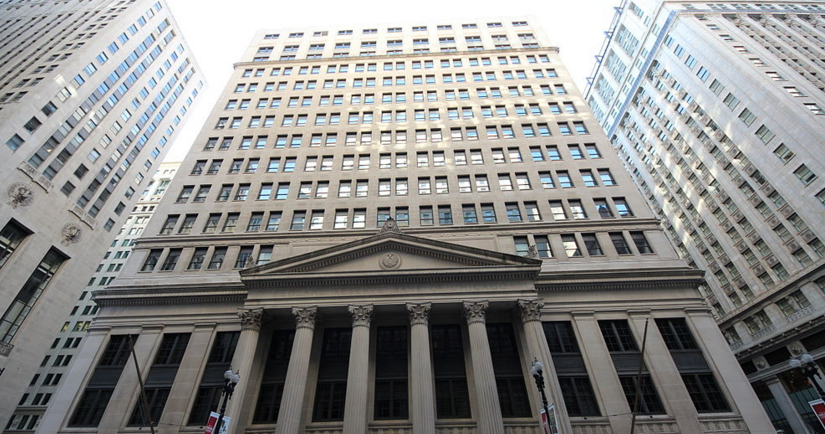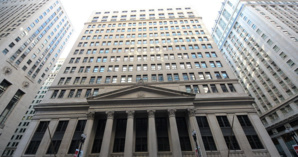He admits that the overall picture is rather depressing, yet in general, many of these fears are often far-fetched in his opinion.
Below is a list of the main factors that disturb the bank's clients.
The end of the cycle in the credit markets is coming
Slok agrees that the credit market in some areas, especially in the energy, is showing alarm signals.
"This suggests that some sectors of the economy are experiencing not the best period, but the rest of the economy feels quite good. In other words, it does not mean that the recession is affecting economy as a whole, but rather just some sectors. "
He also notes that a healthy credit markets are open for business, and they are four times bigger than the most high-risk segments.
Reduced profits, including in those sectors that are not related to energy
Slok believes that the worst is behind us.
"We went through a large drop in oil prices and the strengthening dollar, so there is every reason to believe that the S&P 500 decline in profits is temporary, and soon we will see the restoration of profit", - he said.
In other words, given the changing trends in oil prices and the dollar exchange rate, it is likely that profits would grow.
Borders of profits are at historical highs
The growth of wages is one of the risks to earnings limits. However, Slok suggests that wage growth will come at a slower pace than revenue growth, which means that profit borders will remain high.
China (including China's currency policy, bad loans in Chinese banks, too high a debt denominated in US dollars, as well as the Chinese corporations)
Slok indicates that the Chinese risks are really high outside of the US, as relationship with the US economy remains unclear.
In addition, he said that he believes that the Chinese government will be able to stabilize the situation.
"In my opinion, the Chinese government in recent decades have repeatedly proven that they have the desire and opportunity to resolve the economy’s problems, and I continue to believe that they will be able to resolve the current difficulties," - he writes.
Concerns about ability and willingness of banks to lend
According to Slok, there is a general lack of understanding of the situation in the banking sector. He points out that the credit growth in US banks is 7-8%, which means absence of any signs of the credit crunch in the banking sector.
In addition, he notes that other lending sources become more and more affordable.
The risk of a further drop in oil prices and correction in the energy sector
The energy sector is curtailing production in an attempt to reduce supply on the market and raise prices.
Capital expenditure in the energy market fell by 50% from 2014, said Slok.
"We are approaching the end of the road with increasingly smaller negative impact on GDP," - he said.
Inventory correction
Slok believes that inventory correction is only a temporary phenomenon, which will last for no more than two quarters.
The economy cannot cope with higher interest rates. Therefore, the Fed will create a recession with another rate hike.
The Fed raised rates in January, and the unrest in the markets in January and February led to a tightening of financial conditions.
Slok notes that the economy has the ability to cope with higher interest rates, which will not lead to a recession in the economy over the next quarters.
Too large debt
Slok said that the level of debt in itself is not as important for economic growth as the cost of credit. The latter is "very low for both the private and for the government sectors in the United States."
Increased vulnerability of the US economy and the world economy as central banks are losing their influence
Slok said that this issue does not mean that the United States will soon find themselves in a recession. According to him, these are nothing but hypothetical arguments.
source: finance.yahoo.com
Below is a list of the main factors that disturb the bank's clients.
The end of the cycle in the credit markets is coming
Slok agrees that the credit market in some areas, especially in the energy, is showing alarm signals.
"This suggests that some sectors of the economy are experiencing not the best period, but the rest of the economy feels quite good. In other words, it does not mean that the recession is affecting economy as a whole, but rather just some sectors. "
He also notes that a healthy credit markets are open for business, and they are four times bigger than the most high-risk segments.
Reduced profits, including in those sectors that are not related to energy
Slok believes that the worst is behind us.
"We went through a large drop in oil prices and the strengthening dollar, so there is every reason to believe that the S&P 500 decline in profits is temporary, and soon we will see the restoration of profit", - he said.
In other words, given the changing trends in oil prices and the dollar exchange rate, it is likely that profits would grow.
Borders of profits are at historical highs
The growth of wages is one of the risks to earnings limits. However, Slok suggests that wage growth will come at a slower pace than revenue growth, which means that profit borders will remain high.
China (including China's currency policy, bad loans in Chinese banks, too high a debt denominated in US dollars, as well as the Chinese corporations)
Slok indicates that the Chinese risks are really high outside of the US, as relationship with the US economy remains unclear.
In addition, he said that he believes that the Chinese government will be able to stabilize the situation.
"In my opinion, the Chinese government in recent decades have repeatedly proven that they have the desire and opportunity to resolve the economy’s problems, and I continue to believe that they will be able to resolve the current difficulties," - he writes.
Concerns about ability and willingness of banks to lend
According to Slok, there is a general lack of understanding of the situation in the banking sector. He points out that the credit growth in US banks is 7-8%, which means absence of any signs of the credit crunch in the banking sector.
In addition, he notes that other lending sources become more and more affordable.
The risk of a further drop in oil prices and correction in the energy sector
The energy sector is curtailing production in an attempt to reduce supply on the market and raise prices.
Capital expenditure in the energy market fell by 50% from 2014, said Slok.
"We are approaching the end of the road with increasingly smaller negative impact on GDP," - he said.
Inventory correction
Slok believes that inventory correction is only a temporary phenomenon, which will last for no more than two quarters.
The economy cannot cope with higher interest rates. Therefore, the Fed will create a recession with another rate hike.
The Fed raised rates in January, and the unrest in the markets in January and February led to a tightening of financial conditions.
Slok notes that the economy has the ability to cope with higher interest rates, which will not lead to a recession in the economy over the next quarters.
Too large debt
Slok said that the level of debt in itself is not as important for economic growth as the cost of credit. The latter is "very low for both the private and for the government sectors in the United States."
Increased vulnerability of the US economy and the world economy as central banks are losing their influence
Slok said that this issue does not mean that the United States will soon find themselves in a recession. According to him, these are nothing but hypothetical arguments.
source: finance.yahoo.com






